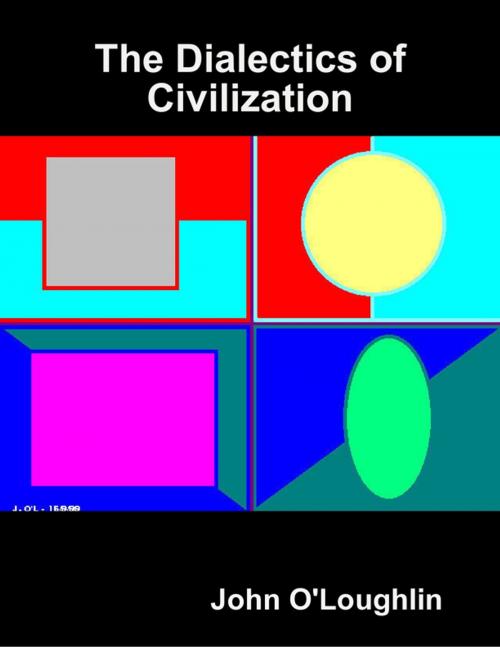| Author: | John O'Loughlin | ISBN: | 9781446682661 |
| Publisher: | Lulu.com | Publication: | January 29, 2013 |
| Imprint: | Lulu.com | Language: | English |
| Author: | John O'Loughlin |
| ISBN: | 9781446682661 |
| Publisher: | Lulu.com |
| Publication: | January 29, 2013 |
| Imprint: | Lulu.com |
| Language: | English |
'The Dialectics of Civilization' continues the dialectical analysis of civilization and, in a broader sense, of the evolutionary process from where it left off in 'The Dialectics of Synthetic Attraction', the author's previous book, and achieves not only enhanced certitude from a greater comprehensiveness of axial and other factors, but also embraces a well-nigh definitive insight into the distinctions between Space and Time which should leave the reader in no doubt as to the path that leads to Eternity and, hence, to the resolution of the historical process, as Hegel would say, by what transcends it from a hegemonic standpoint. Unlike Hegel, Marx, Spengler, and other historical dialecticians, however, this thesis is firmly centred in an idealism that contains its own transcendentalism and would not be possible without a profound insight into metaphysics and the justifications behind a more complete metaphysics than has ever obtained in the historical past.
'The Dialectics of Civilization' continues the dialectical analysis of civilization and, in a broader sense, of the evolutionary process from where it left off in 'The Dialectics of Synthetic Attraction', the author's previous book, and achieves not only enhanced certitude from a greater comprehensiveness of axial and other factors, but also embraces a well-nigh definitive insight into the distinctions between Space and Time which should leave the reader in no doubt as to the path that leads to Eternity and, hence, to the resolution of the historical process, as Hegel would say, by what transcends it from a hegemonic standpoint. Unlike Hegel, Marx, Spengler, and other historical dialecticians, however, this thesis is firmly centred in an idealism that contains its own transcendentalism and would not be possible without a profound insight into metaphysics and the justifications behind a more complete metaphysics than has ever obtained in the historical past.















